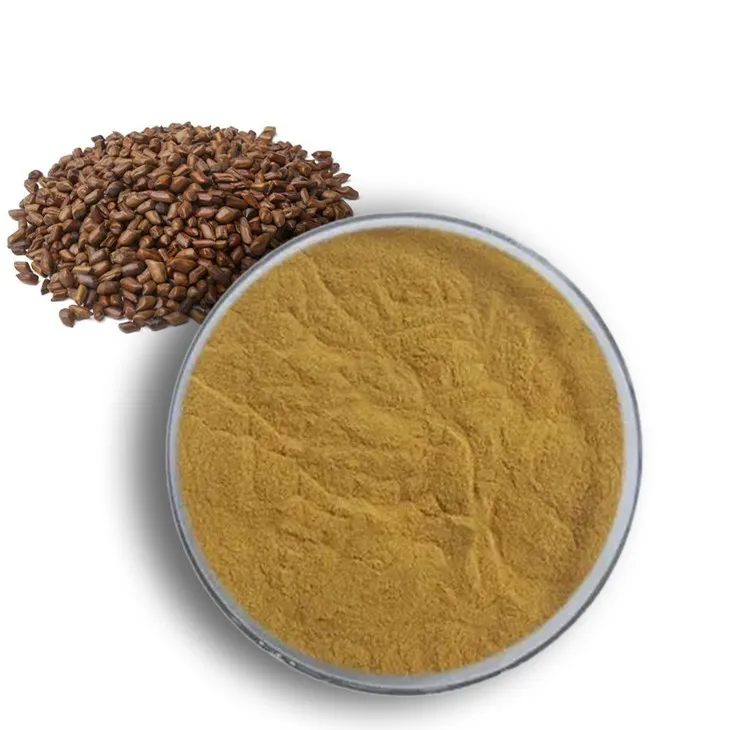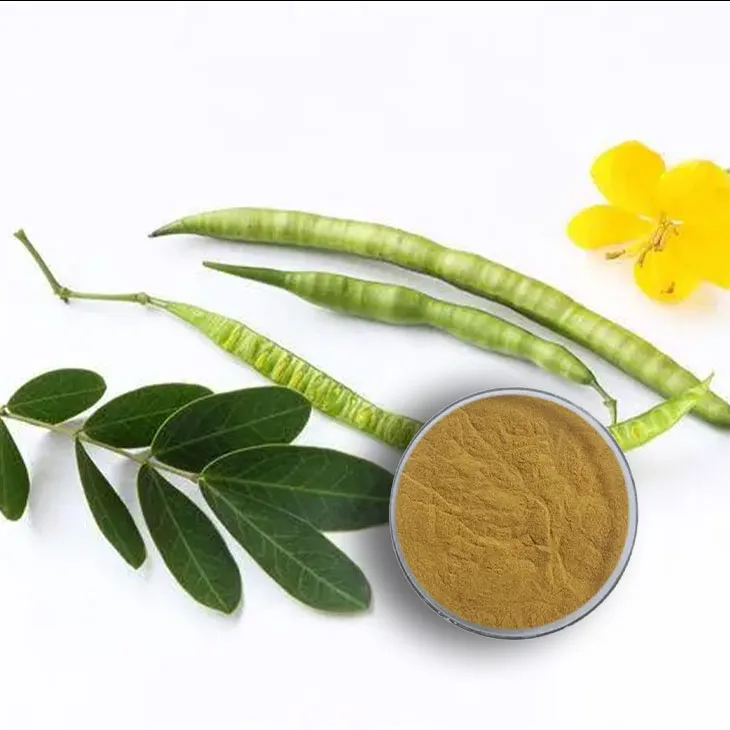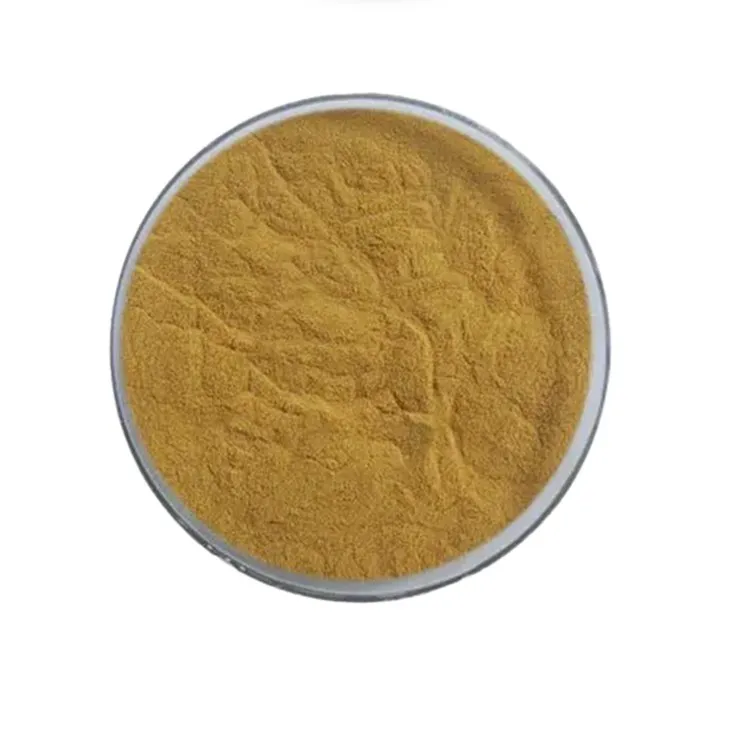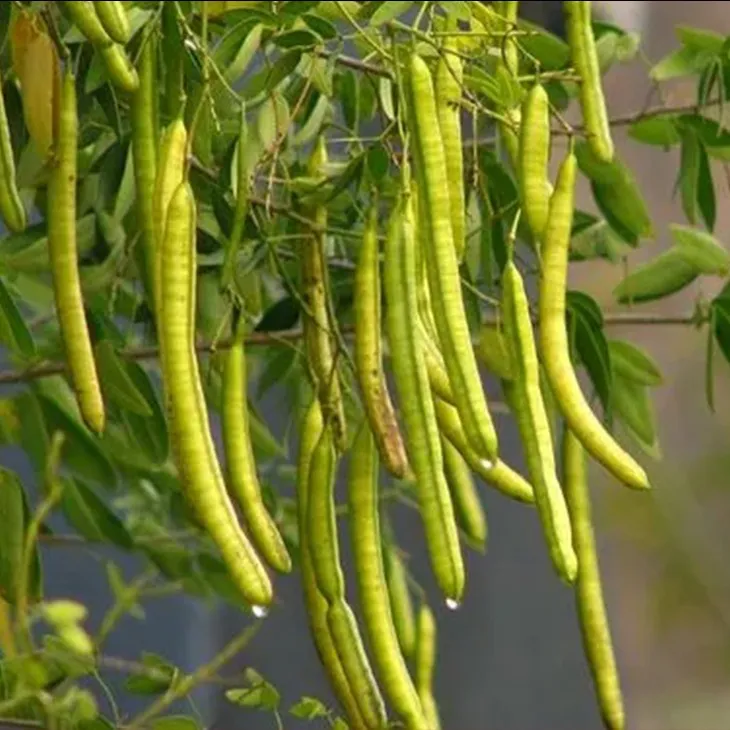- 0086-571-85302990
- sales@greenskybio.com
Cassia Seed Extract: Nature's Best - Kept Secret.
2024-11-13

Introduction
In the realm of natural remedies, Cassia Seed Extract stands as one of nature's best - kept secrets. For centuries, it has been an integral part of traditional herbal medicine in many cultures. However, its full potential is yet to be exhaustively explored. This extract is derived from the cassia seeds, which are small but mighty powerhouses of various beneficial components.

The History of Cassia Seed in Traditional Medicine
Ancient Chinese Medicine
In Ancient Chinese Medicine, cassia seeds have a long - standing history. They were often used in prescriptions to treat a variety of ailments. For example, it was believed to have a positive effect on eye health. Chinese herbalists would use cassia seeds to relieve symptoms such as eye dryness and blurry vision. This was based on the holistic view of traditional Chinese medicine, which saw the connection between different parts of the body and the overall balance of the body's "qi" or energy.Traditional Indian Medicine
Similarly, in Traditional Indian Medicine, cassia seeds also had their place. They were used in different formulations for their potential medicinal properties. Indian practitioners might have used it for digestive issues or as part of remedies for certain skin conditions. The knowledge of cassia seeds in traditional medicine was passed down through generations, and each culture added its own understanding and applications.
The Composition of Cassia Seed Extract
Cassia Seed Extract contains a rich variety of components that contribute to its potential health benefits.
- Anthraquinones: These are a class of compounds that are known for their potential laxative effects. They can help in promoting bowel movements and maintaining a healthy digestive system. However, it is important to note that the amount of anthraquinones in cassia seed extract should be carefully regulated as excessive intake may lead to some side effects.
- Flavonoids: Flavonoids are powerful antioxidants. They play a crucial role in protecting the body's cells from oxidative stress. Oxidative stress is associated with various diseases, including heart disease, cancer, and neurodegenerative disorders. By neutralizing free radicals, flavonoids in cassia seed extract may contribute to overall health and disease prevention.
- Tannins: Tannins are another important component. They have astringent properties, which can be beneficial for the skin and mucous membranes. For example, tannins may help in reducing inflammation in the digestive tract or on the skin surface. Additionally, tannins can also interact with proteins and other substances in the body, potentially having other physiological effects.

Health Benefits of Cassia Seed Extract
Enhancing Liver Function
The liver is a vital organ responsible for numerous functions in the body, such as detoxification and metabolism. Cassia seed extract may play a role in enhancing liver function. Some studies suggest that certain components in the extract can stimulate liver cells to better perform their metabolic tasks. For example, it may help in the breakdown and elimination of toxins from the body more efficiently. This could be beneficial for people who are exposed to environmental toxins or those with a diet high in processed foods.Regulating Blood Pressure
High blood pressure is a common health issue that can lead to serious complications such as heart disease and stroke. Cassia seed extract has shown potential in regulating blood pressure. The flavonoids and other components in the extract may act on the blood vessels, helping to relax them and reduce resistance to blood flow. This, in turn, can lead to a more stable blood pressure level. However, more research is needed to fully understand the mechanisms and to determine the appropriate dosage for optimal blood pressure regulation.Eye Health
As mentioned earlier in the context of traditional Chinese medicine, cassia seed extract may be beneficial for eye health. Modern research has also started to explore this area. Some components in the extract may have anti - inflammatory properties in the eyes, which can be helpful for conditions such as conjunctivitis or dry eyes. Additionally, it may also play a role in maintaining the health of the retina and preventing age - related eye diseases like macular degeneration.Digestive Health
The anthraquinones in cassia seed extract can promote bowel movements, which is beneficial for digestive health. It can help in preventing constipation and maintaining a regular digestive rhythm. Moreover, the tannins can soothe the digestive tract, reducing inflammation and irritation. This can be especially useful for people with sensitive stomachs or those suffering from mild digestive disorders.
Research and Studies on Cassia Seed Extract
Pre - clinical Studies
In pre - clinical studies, researchers have been exploring the chemical composition and potential biological activities of cassia seed extract. These studies have involved in - vitro experiments using cell lines and in - vivo experiments using animal models. For example, in cell culture studies, the antioxidant effects of flavonoids in cassia seed extract have been demonstrated. In animal models, some studies have shown potential improvements in liver function and blood pressure regulation after the administration of cassia seed extract.Clinical Trials
Clinical trials on cassia seed extract are still in the relatively early stages. However, some initial findings are promising. For instance, a small - scale clinical trial on patients with mild hypertension showed that a certain dosage of cassia seed extract over a period of time led to a slight but significant reduction in blood pressure. Another trial focused on patients with digestive issues reported an improvement in bowel regularity and a reduction in abdominal discomfort.Limitations of Current Research
Despite the progress made, there are still limitations in current research on cassia seed extract. One major limitation is the lack of large - scale, long - term clinical trials. Most of the existing trials are small - scale and short - term, which makes it difficult to draw definitive conclusions about the long - term safety and efficacy of the extract. Additionally, the standardization of the extract in different studies varies, which can affect the reproducibility of the results.How to Incorporate Cassia Seed Extract into Your Health Routine
Supplements
One of the easiest ways to incorporate cassia seed extract into your health routine is through supplements. There are various forms of supplements available in the market, such as capsules and tablets. However, when choosing a supplement, it is crucial to ensure that it is from a reliable source. Look for products that are manufactured under strict quality control standards and have been tested for purity and potency.Herbal Teas
Another popular way is to consume cassia seed extract in the form of herbal teas. You can make your own cassia seed tea at home by steeping dried cassia seeds in hot water for a few minutes. This not only allows you to enjoy the potential health benefits but also provides a natural and soothing beverage option. However, be cautious about the dosage when making your own tea, as excessive consumption may lead to unwanted effects.Tinctures
Cassia seed tinctures are also available. Tinctures are concentrated liquid extracts that can be added to water or other beverages. They are often more potent than herbal teas, so it is important to follow the recommended dosage carefully. Tinctures can be a convenient option for those who prefer a more concentrated form of the extract.Precautions and Side Effects
While cassia seed extract has many potential health benefits, it is important to be aware of some precautions and potential side effects.
- As mentioned earlier, the anthraquinones in cassia seed extract can have a laxative effect. Excessive intake of cassia seed products may lead to diarrhea, abdominal cramps, and electrolyte imbalance.
- Some people may be allergic to cassia seeds or components in the extract. Allergic reactions can range from mild skin rashes to more severe respiratory problems. If you experience any allergic symptoms after consuming cassia seed extract, stop using it immediately and seek medical advice.
- Cassia seed extract may interact with certain medications. For example, it may interfere with medications for blood pressure control or liver - related drugs. If you are taking any medications, it is advisable to consult your doctor before starting to use cassia seed extract.
Conclusion
Cassia seed extract is truly a nature's gift that has been used for centuries in traditional medicine. With its potential to enhance liver function, regulate blood pressure, and benefit eye and digestive health, it is an area worthy of further exploration. However, more research, especially large - scale clinical trials, is needed to fully understand its long - term safety and efficacy. When using cassia seed extract, whether in the form of supplements, teas, or tinctures, it is important to be cautious and follow the recommended guidelines to ensure that you can enjoy its potential benefits while minimizing the risks.
FAQ:
What are the main components in cassia seed extract?
Cassia seed extract contains various components such as flavonoids, anthraquinones, and polysaccharides. Flavonoids are known for their antioxidant properties, which can help protect cells from damage. Anthraquinones may have laxative effects in a proper amount and are also being studied for other potential health benefits. Polysaccharides might play a role in modulating the immune system.
How does cassia seed extract enhance liver function?
The flavonoids in cassia seed extract may contribute to liver function enhancement. They can help reduce oxidative stress in the liver by neutralizing free radicals. Also, it may promote the regeneration of liver cells and improve the liver's metabolic processes, such as the metabolism of lipids and toxins, thus maintaining the normal physiological function of the liver.
Can cassia seed extract really regulate blood pressure?
There is evidence suggesting that cassia seed extract may play a role in regulating blood pressure. Some of its components might act on the cardiovascular system, for example, by relaxing blood vessels. This can lead to a reduction in peripheral resistance and, consequently, a decrease in blood pressure. However, more research is still needed to fully understand the mechanisms and its long - term effects.
Are there any side effects of using cassia seed extract?
Although cassia seed extract has potential health benefits, it may also have some side effects. Excessive consumption may cause diarrhea due to the presence of anthraquinones. In some cases, it may also interact with certain medications. For example, it could interfere with drugs for blood - thinning or blood pressure control. So, it is important to consult a healthcare provider before using it, especially for those with underlying health conditions or taking other medications.
How is cassia seed extract usually taken?
Cassia seed extract can be taken in different forms. It can be consumed as a herbal tea by brewing the dried cassia seeds. There are also commercially available supplements in the form of capsules or tablets. However, the dosage and form of intake should be determined according to individual health conditions and under the guidance of a healthcare professional.
Related literature
- The Pharmacological Properties of Cassia Seed Extract"
- "Cassia Seed Extract: A Review of Its Traditional Uses and Modern Research"
- "New Insights into the Health - promoting Effects of Cassia Seed Extract"
- ▶ Hesperidin
- ▶ citrus bioflavonoids
- ▶ plant extract
- ▶ lycopene
- ▶ Diosmin
- ▶ Grape seed extract
- ▶ Sea buckthorn Juice Powder
- ▶ Beetroot powder
- ▶ Hops Extract
- ▶ Artichoke Extract
- ▶ Reishi mushroom extract
- ▶ Astaxanthin
- ▶ Green Tea Extract
- ▶ Curcumin Extract
- ▶ Horse Chestnut Extract
- ▶ Other Problems
- ▶ Boswellia Serrata Extract
- ▶ Resveratrol Extract
- ▶ Marigold Extract
- ▶ Grape Leaf Extract
- ▶ blog3
- ▶ blog4
- ▶ blog5
-
Organic Tongkat Ali extract powder factory.
2024-11-13
-
How to make powder with ashwagandha extract.
2024-11-13
-
Rosehip extract manufacturers from China.
2024-11-13
-
The best cat's claw extract in nature.
2024-11-13
-
Chinese Dandelion Leaf Extract Suppliers.
2024-11-13
-
White mustard seed extract
2024-11-13
-
Uridine-5'-monophosphate Disodium salt
2024-11-13
-
Fenugreek Extract Powder
2024-11-13
-
Alfalfa Meal
2024-11-13
-
Acai Berry Extract
2024-11-13
-
Horse Chestnut Extract
2024-11-13
-
Cat Claw Extract
2024-11-13
-
Cactus Extract
2024-11-13
-
Curcuma Longa Extract/Turmeric extract
2024-11-13
-
Cassia Seed Extract
2024-11-13




















